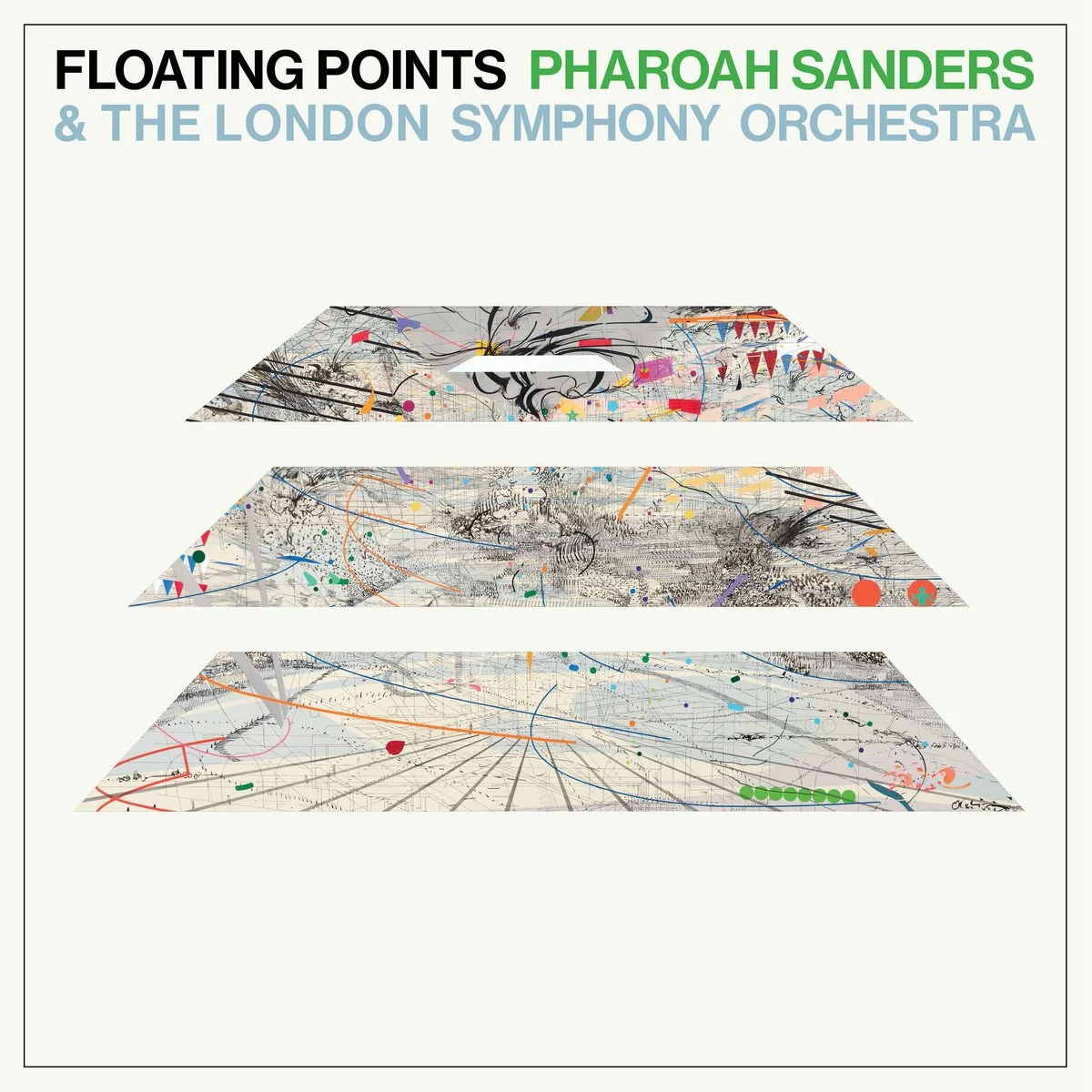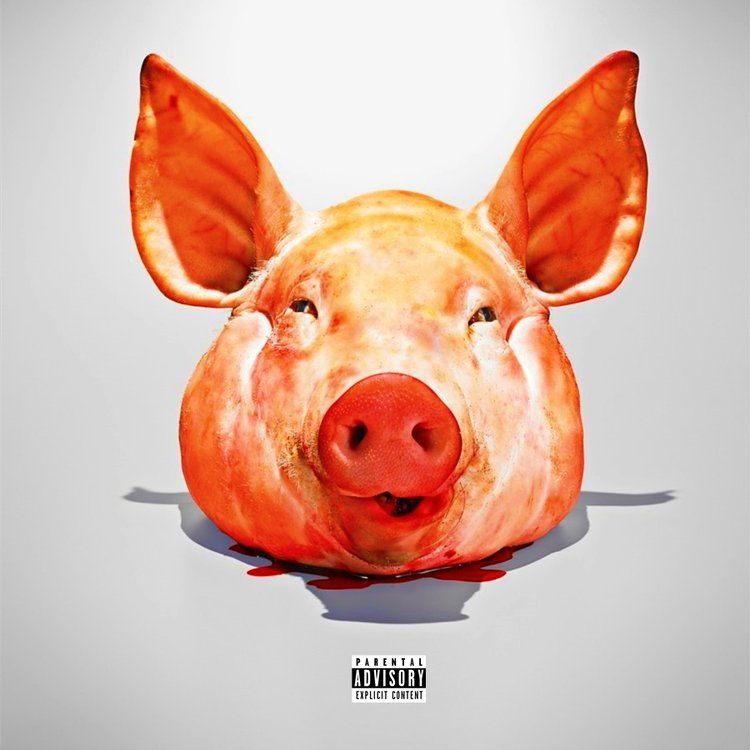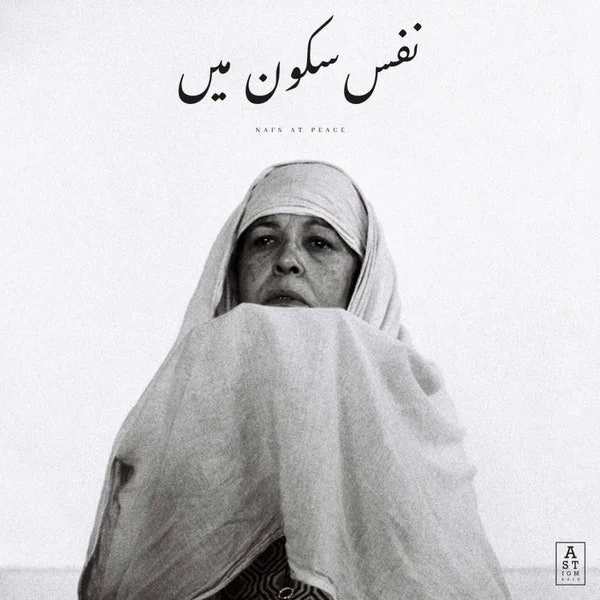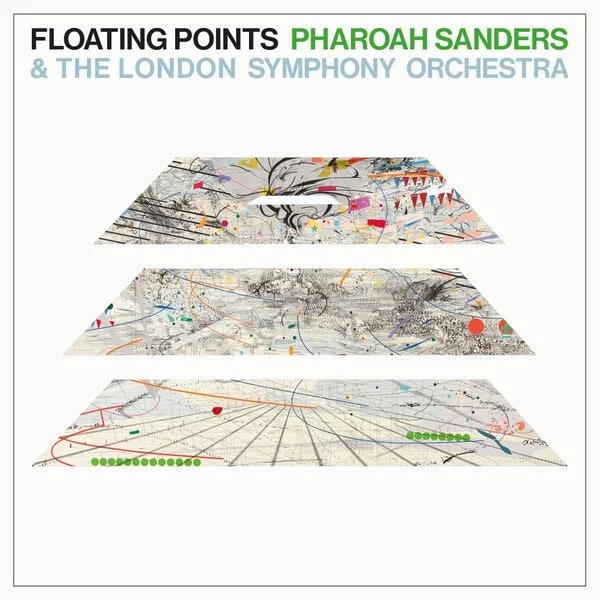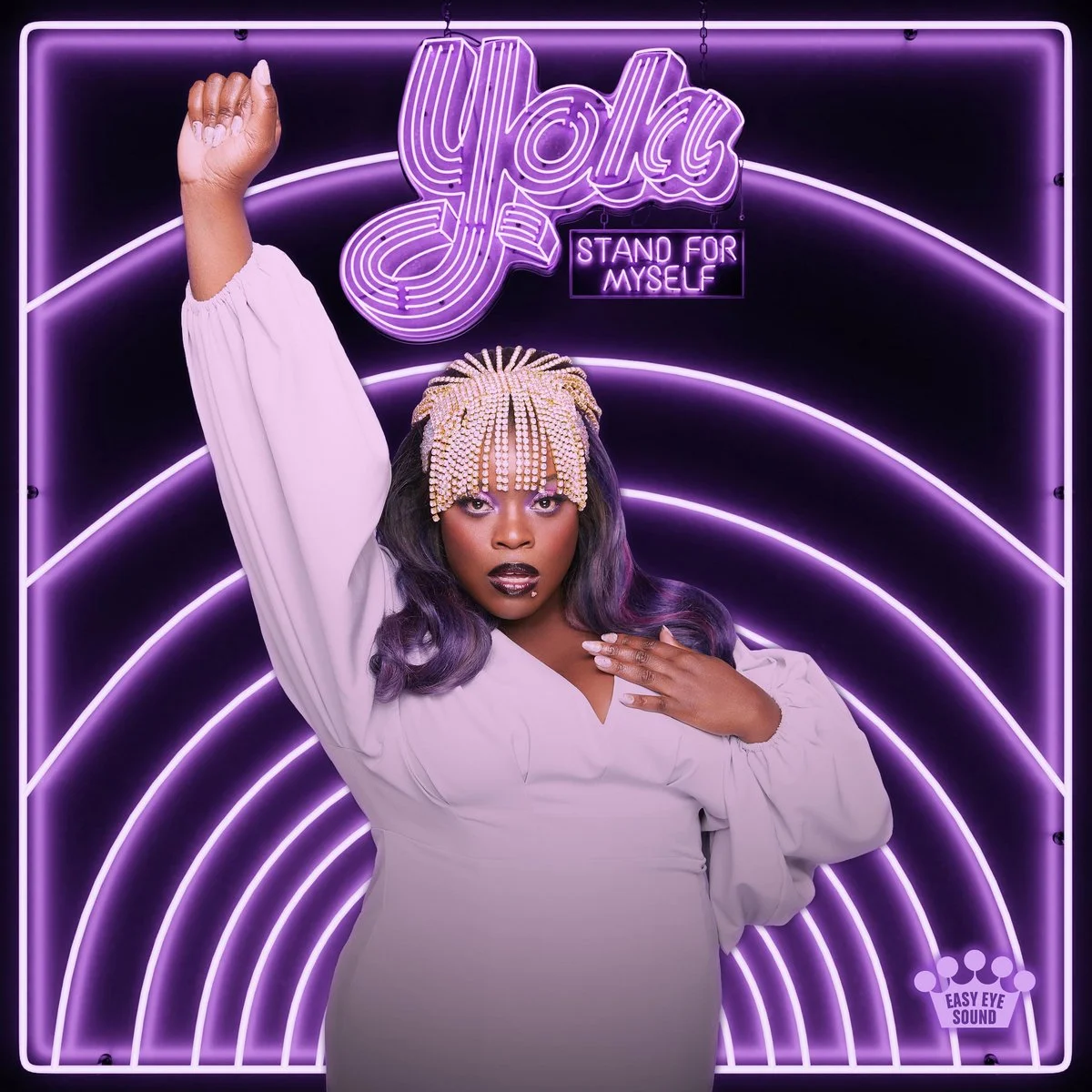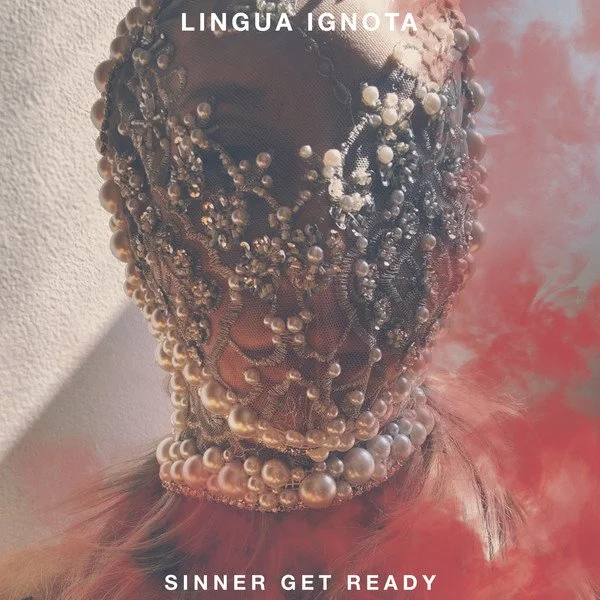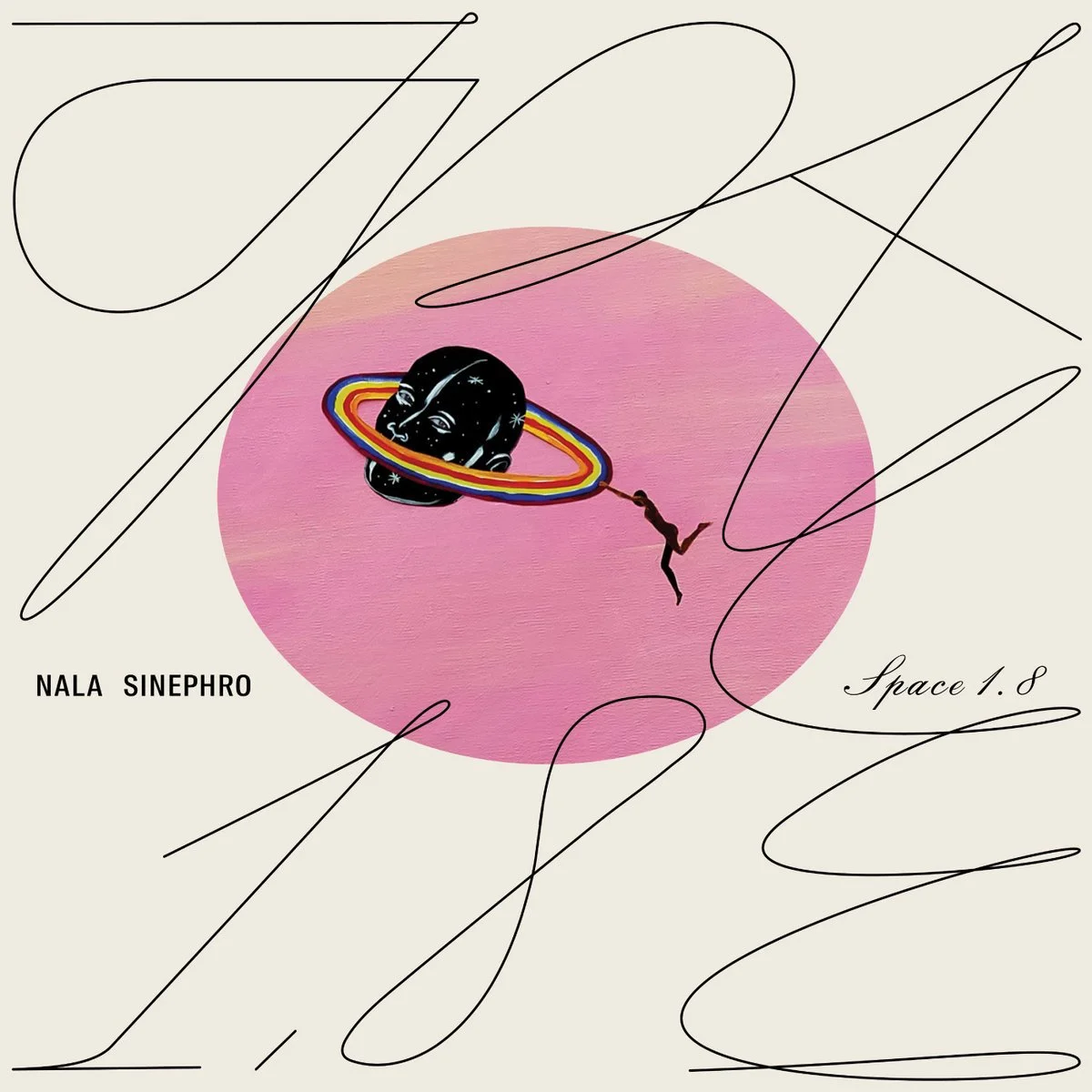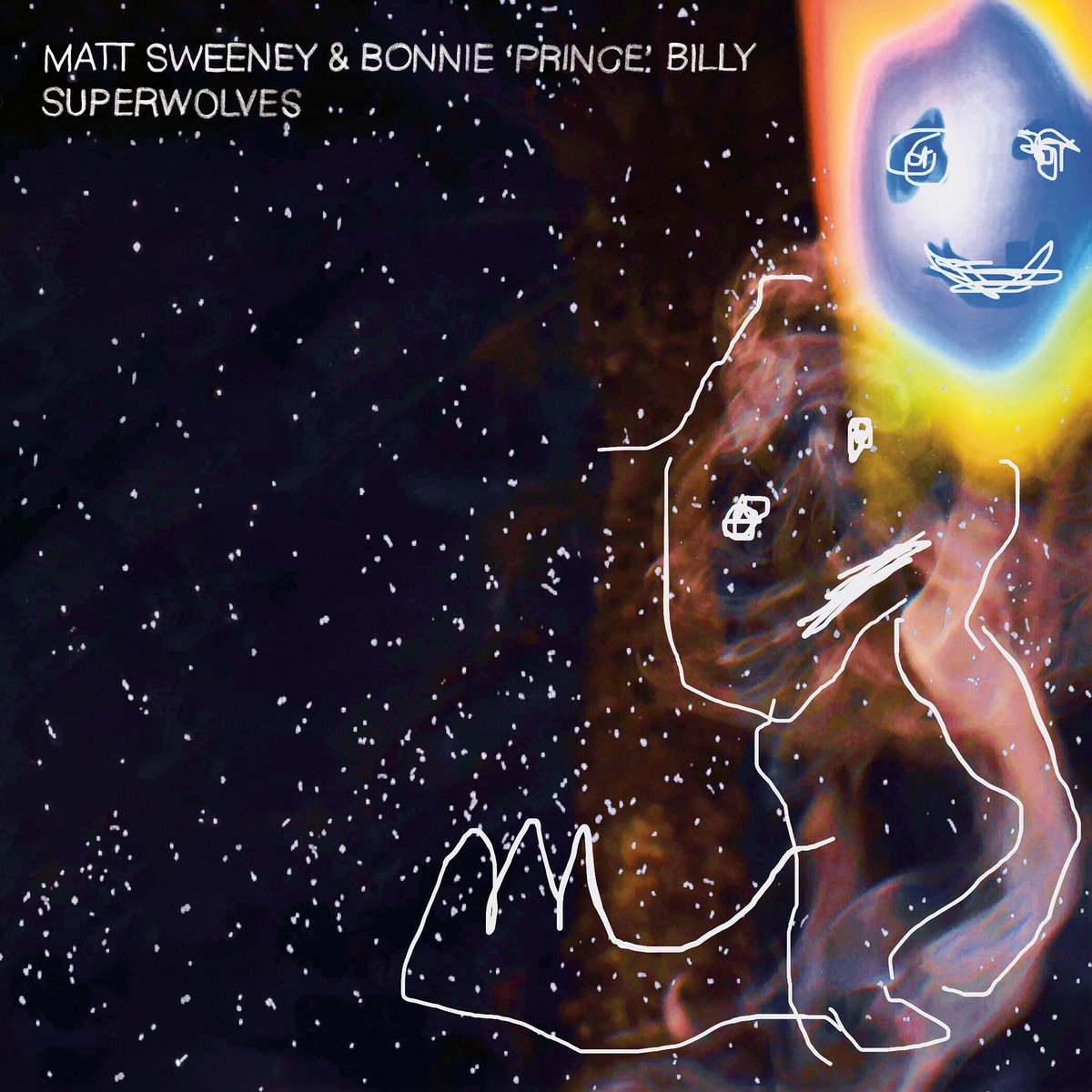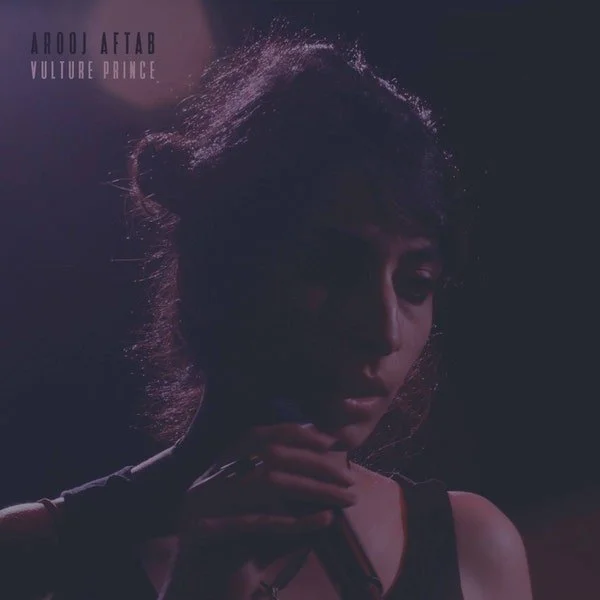Haram - Armand Hammer
Haram is the year’s most quotable rap album. But not in shit-talking nuggets, or golden boasts. More in, this is a primer on history, philosophy and capitalism that’ll go over your head even 10 listens in and the lyric sheet in your hand. With The Alchemist's patented woozy psych punctuating the musings of Elucid and billy woods, the duo burrow further into their own abyssal reality. Only the highest quality space cadets visit, with Quelle Chris bringing one of the finest, and most unnerving, anti-cop screeds in recent memory, and Earl Sweatshirt rapping like you caught him in the middle of a soliloquy. But Haram is still firmly Elucid and billy woods’ fiefdom. “You gotta kill the cop in your head,” “Guns go off, smoke and fire, light and sound/ My new name colonizers can't pronounce.” We could fill the rest of this list with incisive prose, but the bottom line, even in dark times, is this: “don’t make a keepsake out of grief.” - NS
Nafs at Peace - Jaubi
Peace. Freedom. Self-discovery. These are the underlying themes of Nafs at Peace. Without a single word spoken on the album, it’s remarkably self-assured and self-evident in its truths. Created by Pakistani improvisational jazz outfit Jaubi, Nafs at Peace is one of the year’s most revelatory releases. Weaving together the threads of Hindustani classical music, hip-hop beats and spiritual jazz, the group has made a record as funky as it is healing. The connections between the ecstatic jazz of Alice Coltrane or Pharoah Sanders are less evident in the notes played, as Jaubi based these songs around specific melodic, raga structures, but in the intent. These are musicians lost in their instruments or—at its most ascendent, one with the notes themselves.
Promises - Floating Points/Pharoah Sanders/The London Symphony Orchestra
Promises is crafted by titans, made, on first listen, to be utterly otherworldly. The abyssal plains of the sea, deep space and spiritual dimensions are the playgrounds invoked by the collaboration between saxophone god Pharoah Sanders, electronic auteur Floating Points, backed by the sheer, sterling talent of the London Philharmonic. Over 9 movements, each gets to shine. Floating Point’s trademark analog burble, where he makes synths sound like aliens attempting to use a voice box for the first time, the morass of crashing strings that carries heart stoping power and the golden flow of Sanders’ sax all pass the baton of melody and force.
But, over the course of many listens, Promises reveals a heart. That simple, but mystic melodic phrase that is the backbone of the album becomes softer, warmer as an ark’s worth of instruments dance upon it. The Philharmonic end the album with a stark, sorrowful plea, we hear Sam Shepard’s fingers massage the keys of a piano—reminders that there are humans behind this majestic beast. And humanity is most firmly recognized and realized by Sanders. He puts down his sax and wordlessly trills early on in the album. It is a reminder of the humans behind every instrument. That no matter how spectacular, how awe-inspiring the composition is, a human hand, a heart, a brain, a soul like ours crafted this. Sander’s soft burbles are a different sort of communication. The wisdom of one of our greatest elders being passed down as we watch, listen and learn. - NS
Stand For Myself - Yola
"I been here and I know how it is," sings Yola at the top of her brilliant sophomore full-length. "I been living it alone for all these years." She's lonely no more, as the warm reception to Stand For Myself is affording her all the friends in the world. Aided by period-perfect production from label owner Dan Auerbach, Yola proves unafraid of taking her powerful voice and heartbreaking lyrics into any genre she chooses: '70s AOR rock ("Diamond Studded Shoes"), early Top 40 soul music ("Now You're Here"), and even the faintest helping of disco ("Dancing Away in Tears"). If there's a song style Yola has yet to transform into a heart-rendering classic, we have yet to hear it. - Evan Sawdey
Sinner Get Ready - Lingua Ignota
There’s no room for forgiveness on Sinner Get Ready. Nor should there be. Across nine glistening, blood-caked hymns, Kristen Hayter demands confession, repentance, and Old Testament style retribution. Organs groan, banjos squeal and Hayter stalks rural Pennsylvania as the embodiment of wrath on Earth. “I don’t give a FUCK! Just kill him.” This is what it sounds like to be nailed to a cross. - TF
Space 1.8 - Nala Sinephro
What a year for jazz it’s been. The genre’s influence on the online musicsphere in 2021 was palpable and undeniable, causing me to search for a rationalization for its recent boom. Is it a yearning for unadulterated freedom of expression in this constrained, authoritarian world we live in? A communal desire to hear what it sounds like to be human: living and breathing, crying and smiling, mourning and hoping, preparing both for disaster and revelation?
In her striking debut, Space 1.8, Caribbean-Belgian composer Nala Sinephro wields the transportive and meditative qualities of ambient music, while holding fast to this central pillar of jazz: humanity. The record’s sound design walks this line masterfully: in one moment, a saxophone’s woody timbre is tangible and immediate, dancing across your eardrum like a thick paintbrush, but in the next will be time-stretched and blasted into the stratosphere via an effects chain. Sinephro employs a large cast of musicians to create a broad sound palette that never loses its cohesion or groundedness, whether it’s the booming synth and sax grit of “Space 6,” or the blissful vapor of the closer “Space 8”.
Rather than taking us on a journey, Nala Sinephro has provided us with the keys to 8 closed doors, behind each of which lies a distinct sonic ecosystem awaiting exploration. I can’t help but return again and again, discovering new nooks and crannies with every visit. - Bram Rickett
Superwolves – Bonnie ‘Prince’ Billy and Matt Sweeny
As with his good friend and collaborator Bill Callahan, Will Oldham’s career has been defined by continual improvement: not just as a musician but as a person, a lover, a provider. His early works (great as they often were) were marred by a glib treatment of women that confused sexual cynicism for poetic truth, but the domesticity of his work in the last decade-or-so found a more worthy use for his firm hand and foul mouth.
Superwolves is his greatest tribute yet to just being good. The production is punched up, the guitarwork from Matt Sweeney and hotshot guest Mdou Moctar proves they practice, the songs for his kid are as pure and rustic as a hand-crafted toy horse and even if the language is ambiguous enough to suggest he’s singing as a pimp, Oldham still wants to make sure his girls are cared for. Or maybe he’s singing as a madam. He plays around delightfully with gender and sexuality throughout, from the drag roleplay of “My Blue Suit” to the ever-changing pronouns he uses in describing God, to the fact that Sweeney and Oldham are still so frequently described as sounding like lovers. That might be because Oldham is a pro at getting himself into homoerotic situations (see his star turn in Old Joy and his cover of cowboys-in-love classic “Pancho”), or maybe because Sweeney’s harmonies are so haphazard he sounds like Linda McCartney reborn as a guitar bro. But mostly it’s because his bluesy arrangements and Oldham’s rustic, cryptic visions have always been tight enough to get tangled. That Superwolves sounds almost nothing like their last collaboration Superwolf only proves how strong their bond is: rather than catering to fans yearning for a follow-up to one of Oldham’s most beloved albums, they’ve tapped into something ineffable that only they can ever really understand. - Daniel Bromfield
Vulture Prince - Arooj Aftab
“Last night my beloved was like the moon / So beautiful,” coos a chorus of slinky harmonies. And Arooj Aftab’s third album, Vulture Prince, deserves to be beloved and carry the praise she gives. A deeply nocturnal album, Vulture Prince combines Aftab’s swirling mix of chamber music and Pakistani Ghazal tunes into an intoxicating experience. There’s a moment when album centerpiece “Last Night” shimmers, shudders and dissolves into smoke, a faint dub influence clinging to the song by the collar like perfume. That brilliant, mystic moment exemplifies the fusion Aftab has molded. She tears the fat from the genres she mutates, only leaving the bewitching and ascendant left. - NS
